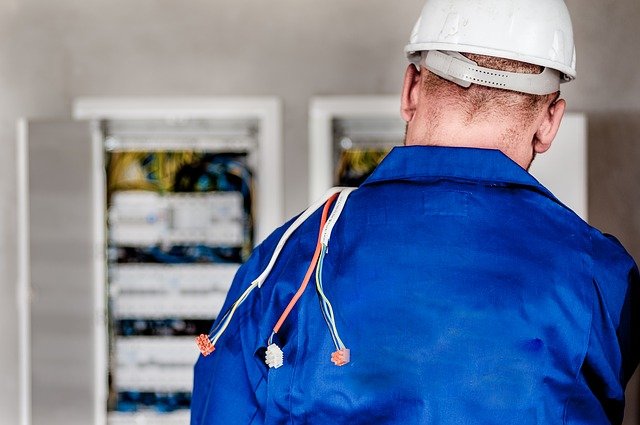Electricians are professionals who perform a variety of electrical tasks. These jobs can range from installing wiring to repairing electrical equipment. Here are a few things an electrician should know. They must also read blueprints, which show where circuits and outlets should be located. This is important because it determines the scope of the work. Electricians also connect electrical wires to breakers and transformers.
Electrical wiring
Electricians work in a wide variety of settings, including industrial and residential buildings. They install new circuitry, test it, and troubleshoot malfunctions. Electricians also rewire old systems. Their work can be challenging and demanding, and it is important to understand what goes into the job before applying.

An electrician is a professional who installs, maintains, and repairs electrical systems, and can also install lighting and other fixtures. They also ensure that all their work meets code requirements and safety regulations. For example, a hounslow electrician may install street lights, electrical control systems, or intercom systems. They also plan and install electrical equipment, such as circuit breakers. They may also use testing devices to check their work.
Electricians work with hand and power tools. Hand tools are used to install wiring, and power tools are used to operate appliances. They use different tools to inspect and test wires, and they are required to follow national electrical codes.
Repairing electrical equipment
An electrician is a trained professional who is responsible for repairing electrical equipment. The work he performs can range from major installations and rewiring a home to simple tasks like changing over a broken breaker or socket. These professionals are trained to properly diagnose any electrical problems and provide the best repair and maintenance services. The work they perform can be in a residential or business setting.
Some electricians specialize in one type of work, while others work in more general areas. For instance, electricians in large factories typically perform more complex maintenance tasks. They may repair motors, transformers, generators, and electronic controls on machine tools. They may also consult with managers and engineers to ensure that all equipment is working properly.
Installing electrical wiring
Wiring a home involves running wires through walls and making sure that all of the components are securely in place. In new construction, this task is easier because the wiring is done before the walls are finished, which reduces the costs of the project. If your home is an older model, you may need to have the wiring replaced in order to ensure that it works safely. An electrician can handle this task for you and ensure that your home meets the electrical safety codes.
The cost for installing electrical wiring varies depending on the amount of square footage. The cost to install wiring in a new home can be between $3 and $5 per square foot. This fee covers the labor, materials, permits, and new electrical panel. It can also include the cost of outlets, light fixtures, and appliances. Depending on your area, the project could take up to a week. In most states, you must hire an electrician if you want to have your electrical wiring installed, so you should check with your state’s regulations before hiring a professional.
Maintenance of electrical systems
Whether it’s a house or a commercial property, electricians can help ensure that everything’s running safely. They perform regular inspections of electrical systems and connections to ensure that the system is performing at its best. Periodic assessments can also help prevent electrical problems before they escalate to costly emergencies.
An electrician’s duties include the installation, operation, maintenance, modification, and repair of electrical systems. This job requires a high level of manual dexterity, as well as good eye-hand coordination and physical fitness. They must also have good color vision and be able to differentiate between various types of electrical wires. Once they’ve gained experience, electricians can advance to supervisory positions. They may become construction superintendents, project managers, or even run their own electrical contracting businesses. Electricians who wish to start their own business should have good estimate skills and be good communicators.
Electrical maintenance also includes testing electrical switches and power outlets. They also test and repair wiring that may have been damaged or deteriorated. They may use metal tubing to protect wires, and splice them together if necessary. These systems are critical to the operation of buildings, as the failure of any of these electrical components can cause major disruptions to operations.
Alternative power generation
Alternative power generation, such as solar panels and wind turbines, should create an increasing demand for electricians. These workers install, repair and maintain power systems in almost every building. They will also be needed to install and connect alternative power systems to power grids. Employment growth in this field is likely to depend on government incentives, which can increase consumer demand and reduce installation costs.
Electricians who want to go into the renewable energy industry need to develop a strong network and educate themselves on market forces. It will be helpful to get involved with industry forums and look for specialised training courses. Networking is more important than qualifications in this field. With self-confidence and a little sacrifice, an electrician can easily cross over from an employed position to self-employment. Eventually, he or she can earn more than $60K a year.